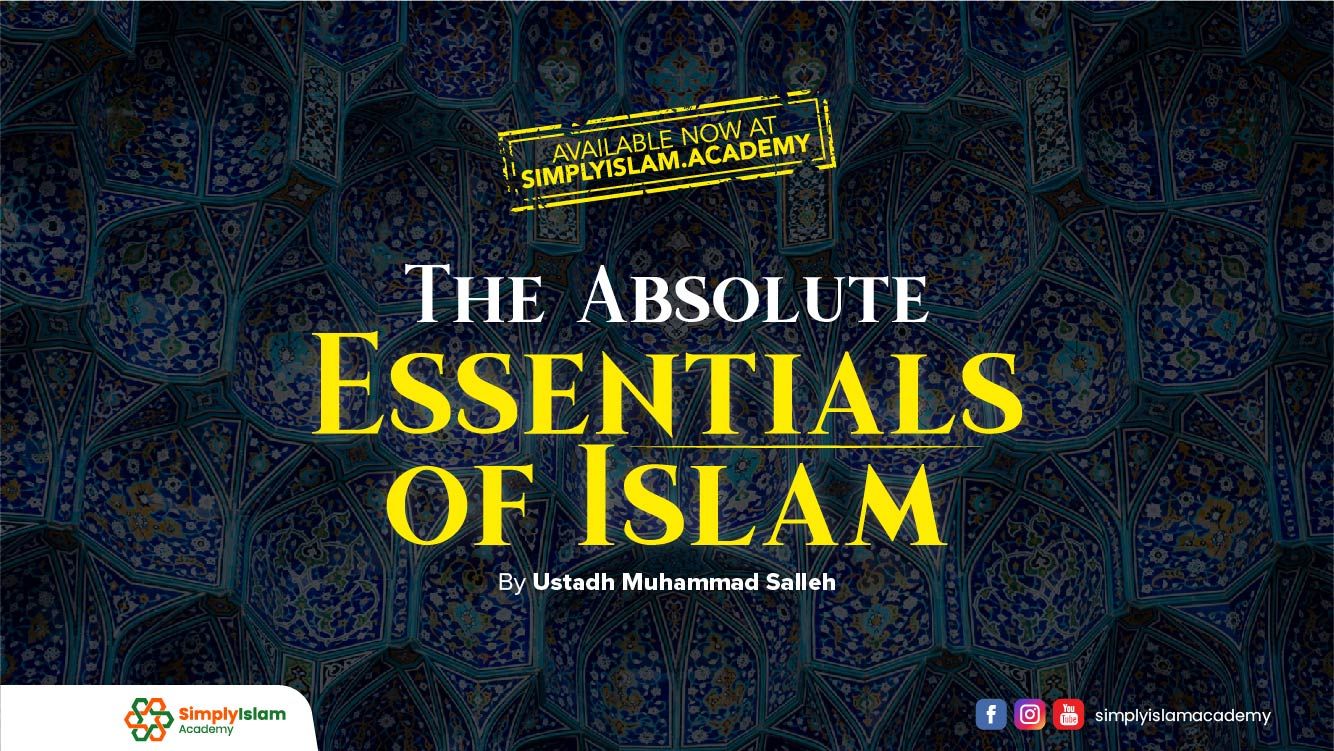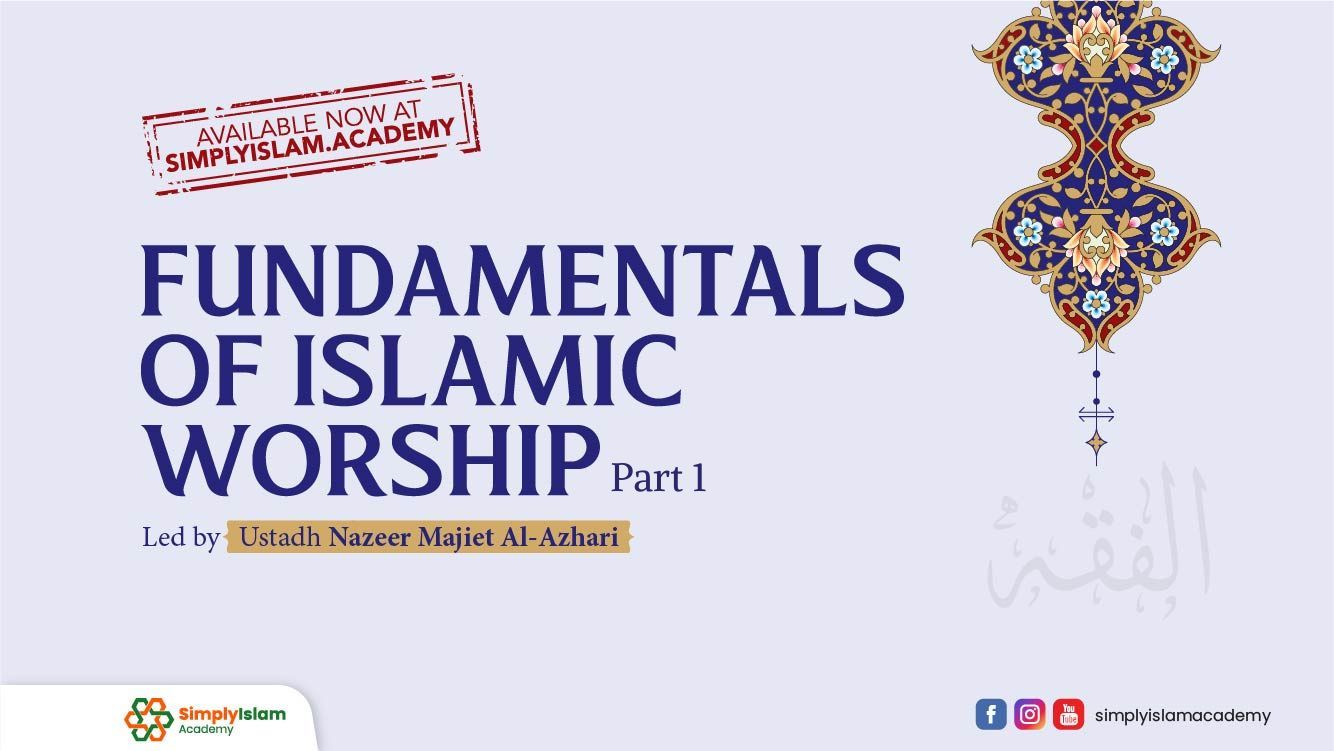-
Spiritual HealingFiqh
How to Perform Salat ul Hajat ( Prayer of Need) - A Muslim’s Guide
-
Naushin Abid
-
12 Nov 2021
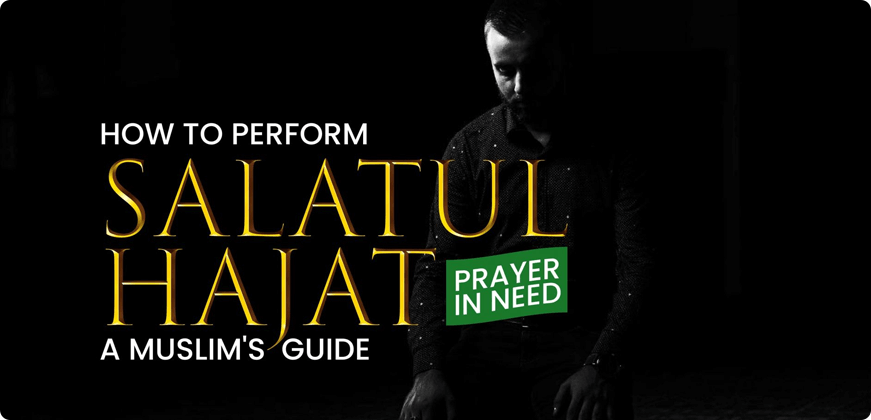
Have you ever found yourself caught up in a situation when all worldly plans and solutions fail and there is just one option left?
To make Dua and pray to Allah the Almighty for resolving that particular conflict or issue? This special prayer in need is called Salat Ul Hajat.
This special prayer in need is called salatul hajat.
This article will encompass all details and familiarize the reader with the definition of hajat prayer, it's significance according to Quran and Hadith, the ways on how to perform Salat ul Hajat, and what Duas and adhkar to recite after making the hajat prayer.
What is Salatul Hajat and Its Meaning in Islam?
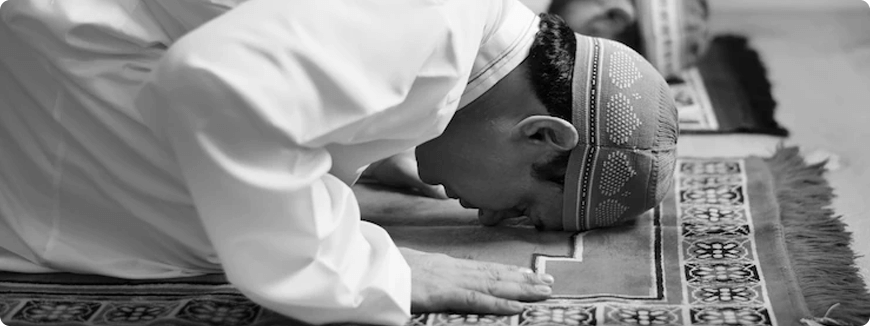
There are times in our lives when we feel so desperate to acquire something that it becomes the sole purpose and reason for our existence . It becomes such a tiresome need that our only thought at the time of waking is that need or Hajat and the last thing on our mind prior to sleep at night is that hajat which is unfulfilled.
So we have been taught from the sunnah of our prophet صلى الله عليه وسلم in such times of distress and need when there is no other outlet available , then we can make this salat ul hajat or rather its dua hajat, in the form of prayer.
The Arabic word for a desperate desire is “ حاجة. Hajat comes from the root words ح و ج.
It means an act of needing something, or to be in a state of neediness. In other words when a certain matter or situation that concerns us to such an extent that it requires immediate fulfillment on our part then we resort to salat ul hajat. So it is a prayer of need.
Whenever we need assistance or guidance, we call for help or reach out to our immediate support system around us, and quite often get neglectful of the fact that the only deity who is available at all times to answer our every dua of need is Allah the Almighty.
It is our Creator Who has actually taught us that we as muslims must reach out to Him and make this dua of need.
Learn from the Best Muslim Scholars
Fiqh
Aqidah
Qur'an
Sirah
Significance of Salaat ul Hajat:
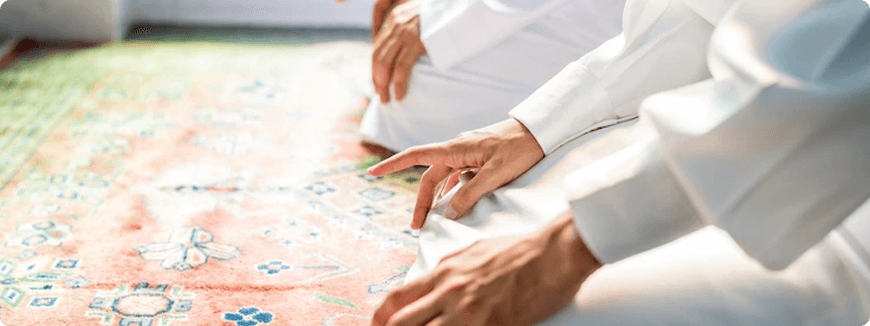
As is evident from the prophetic narrations of hadith and sunnah, that messenger صلي الله عليه وسلم left behind for us a legacy of calling out to Allah the Almighty in all matters, especially those of distress and difficulty. It is a muslims believer’s foremost tool or weapon to stand in need of prayer in front of Allah the Almighty while displaying his humbleness and inability to achieve any task without His divine intervention to grant the capacity to perform it.
The importance of salat in Islam is underscored by its role in strengthening a believer’s relationship with Allah. Since all matters are reverted to Him alone and He is The Giver or as the name suggests, Al-Wahhab, the One who grants without expecting anything in return and Al-Razzaq , Al- Qayyum, the One who provides affirmation and Sustenance. The hajat prayer is one such worship that reverts back to all these characteristics of Allah the Almighty mentioned above. What better way to invoke HIS mercy and benevolence than to make an earnest namaz hajat dua .
Quranic verses on Hajat Prayer:

In Quran , Allah the Almighty has asked the muslim believers and faith worshippers to call Him when ever they have any desire or need. As Allah Almighty mentions in this verse in Surah Ghafir , Chapter 40: Verse 60.
وَقَالَ رَبُّكُمُ ادْعُونِي أَسْتَجِبْ لَكُمْ ۚ إِنَّ الَّذِينَ يَسْتَكْبِرُونَ عَنْ عِبَادَتِي سَيَدْخُلُونَ جَهَنَّمَ دَاخِرِينَ
Your Lord says, ‘Call on Me and I will answer you; those who are too proud to serve Me will enter Hell humiliated.’
In another place we see the adaab or etiquettes of making a dua for hajat, in surah Al Araf, Chapter 7: verse 205-206.
وَاذْكُر رَّبَّكَ فِي نَفْسِكَ تَضَرُّعًا وَخِيفَةً وَدُونَ الْجَهْرِ مِنَ الْقَوْلِ بِالْغُدُوِّ وَالْآصَالِ وَلَا تَكُن مِّنَ الْغَافِلِينَ
[Prophet], remember your Lord inwardly, in all humility and awe, without raising your voice, in the mornings and in the evenings– do not be one of the heedless– 206 [even] those who live in the presence of your Lord are not too proud to worship Him: they glorify Him and bow down before Him.
Also Allah the Almighty commands the believers to reach out to Him for all their Hajat or needs in the form of prayer in Surah Al Baqarah Chapter2: Verse 186,
وَإِذَا سَأَلَكَ عِبَادِي عَنِّي فَإِنِّي قَرِيبٌ ۖ أُجِيبُ دَعْوَةَ الدَّاعِ إِذَا دَعَانِ ۖ فَلْيَسْتَجِيبُوا لِي وَلْيُؤْمِنُوا بِي لَعَلَّهُمْ يَرْشُدُونَ
[Prophet], if My servants ask you about Me, I am near. I respond to those who call Me, so let them respond to Me, and believe in Me, so that they may be guided.
Hence it is the promise of Allah the Almighty to guide the seeking worshippers who reach out to him through their prayer in need.
Another basis of salat al hajah or prayer of need from the Quranic text comes from our worthy Prophets ( May Allah be pleased with them and have mercy on them). When we see the way they reached out to Allah the Exalted in times of distress or desperate need, here we will quote just a few instances, for the sake of brevity, however, it would be noteworthy to mention that the entire Quranic text is filled with sporadic mention of our esteemed prophets such as Ibrahim, Musa , Essa, Ayub, yaqub, Nuh, Adam ( May Allah be pleased with all of them), all of whom left behind them a role model or a path to tread whenever affronted with some affliction then pray and make dua hajat.
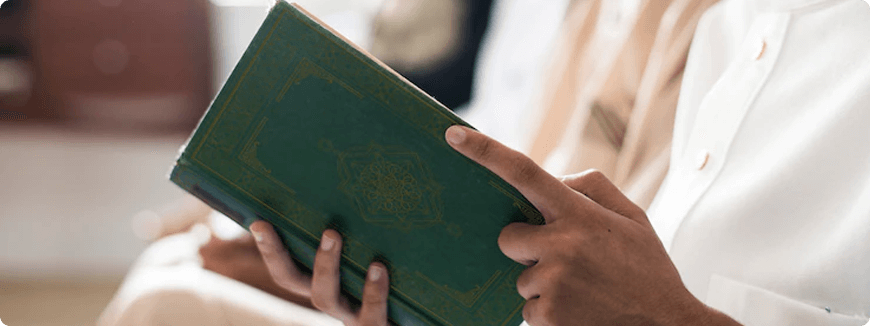
First mention and the one deemed most significant as well is that of Prophet Younus May Allah the Almighty be pleased with him), as Allah the Exalted lovingly and affectionately reprimands him in this beautiful verse in Surah al Anbiya, Chapter 21: 87-88,
وَذَا النُّونِ إِذ ذَّهَبَ مُغَاضِبًا فَظَنَّ أَن لَّن نَّقْدِرَ عَلَيْهِ فَنَادَىٰ فِي الظُّلُمَاتِ أَن لَّا إِلَـٰهَ إِلَّا أَنتَ سُبْحَانَكَ إِنِّي كُنتُ مِنَ الظَّالِمِينَ فَاسْتَجَبْنَا لَهُ وَنَجَّيْنَاهُ مِنَ الْغَمِّ ۚ وَكَذَٰلِكَ نُنجِي الْمُؤْمِنِينَ
And remember the man with the whale,when he went off angrily, thinking We could not restrict him,but then he cried out in the deep darkness, ‘There is no God but You, glory be to You, I was wrong.’ 88We answered him and saved him from distress: this is how We save the faithful.
In this verse is the evidence of praying in need , that when the person in distress recites this quranic verse which is actually a dua for hajat , then if it is straight from the afflicted heart it will find its way to Allah the Almighty like an arrow that hits the target in the first throw.
Another prophet mentioned with reference to making Dua e hajat is Zakariyya ( May the peace and blessings of Allah the Almighty be upon him). He yearned desperately for a child and an heir to carry his noble cause of Prophethood. He could not have children since he was very old and his wife was barren. He made a heartfelt plea or dua e hajat to Allah the Almighty for his need . One day he stood up in his mehrab or prayer area to perform salat ul hajat prayer and as he was doing so , the angels gave him glad tidings of a child as we see in the following verse in Surah Aal e Imran,
هُنَالِكَ دَعَا زَكَرِيَّا رَبَّهٗۚ قَالَ رَبِّ هَبۡ لِىۡ مِنۡ لَّدُنۡكَ ذُرِّيَّةً طَيِّبَةً ۚ اِنَّكَ سَمِيۡعُ الدُّعَآءِ
There and then Zachariah prayed to his Lord, saying, ‘Lord, from Your grace grant me virtuous offspring:You hear every prayer.’
فَنَادَتۡهُ الۡمَلٰٓٮِٕكَةُ وَهُوَ قَآٮِٕمٌ يُّصَلِّىۡ فِىۡ الۡمِحۡرَابِۙ اَنَّ اللّٰهَ يُبَشِّرُكَ بِيَحۡيٰى مُصَدِّقًۢا بِكَلِمَةٍ مِّنَ اللّٰهِ وَسَيِّدًا وَّحَصُوۡرًا وَّنَبِيًّا مِّنَ الصّٰلِحِيۡنَ
The angels called out to him, while he stood praying in the sanctuary, ‘God gives you news of John confirming a Word from God.b He will be noble and chaste, a prophet, one of the righteous
Then there is Hannah bint e Imran, a noble and righteous lady from the family of prophets. She could not have children and her need was beyond desperation. One fine day, she stood gazing outside, she saw another bird peeking and lovingly caring for her babies. At that time her heart yearned in prayer and she made Dua hajat in the following verse:
In surah Al e Imran chapter 3: verse 35,
اِذۡ قَالَتِ امۡرَاَتُ عِمۡرٰنَ رَبِّ اِنِّىۡ نَذَرۡتُ لَـكَ مَا فِىۡ بَطۡنِىۡ مُحَرَّرًا فَتَقَبَّلۡ مِنِّىۡٓۚ اِنَّكَ اَنۡتَ السَّمِيۡعُ الۡعَلِيۡمُ
Imran’s wife said, ‘Lord, I have dedicated what is growing in my womb entirely to You; so accept this from me. You are the One who hears and knows all,
Since Allah the Almighty appreciates those who reach out to Him for all their requirements in prayer.
So what better way is there then to seek out His mercy through standing in prayer and making before the Lord of all the world's . While simultaneously following the legacy of the prophets that they have left behind for us.

Then another dua of need recited by prophet Zakariya ( May Allah the Almighty be pleased with him).
In the following verse in Surah Anbiya Chapter 21: verse 89-90.
وَزَكَرِيَّا إِذْ نَادَىٰ رَبَّهُ رَبِّ لَا تَذَرْنِي فَرْدًا وَأَنتَ خَيْرُ الْوَارِثِينَ ‘فَاسْتَجَبْنَا لَهُ وَوَهَبْنَا لَهُ يَحْيَىٰ وَأَصْلَحْنَا لَهُ زَوْجَهُ ۚ إِنَّهُمْ كَانُوا يُسَارِعُونَ فِي الْخَيْرَاتِ وَيَدْعُونَنَا رَغَبًا وَرَهَبًا ۖ وَكَانُوا لَنَا خَاشِعِينَ
Remember Zachariah, when he cried to his Lord, ‘My Lord, do not leave me childless, though You are the best of heirs.’ 90We answered him– We gave him John, and cured his wife of barrenness– they were always keen to do good deeds. They called upon Us out of longing and awe,and humbled themselves before Us.
In another place in the famous story of Prophet Yusuf a.s. When he was abducted by his brothers in a devious plan and then separated from his father Hazrat Yaqub a.s the prophet, for a long time, since Hazrat Yaqub was very fond of his son hazrat Yusuf a.s. And could not bear his separation, hence when his other sons taunted and mocked him for his endless yearning for his beloved son, he reached out to Allah the Almighty in a desperate plea or hajat prayer as is evident from the following verse of
Surah Yusuf chapter 12: verse 87.
Surah Yusuf chapter 12: verse 87.
قَالَ اِنَّمَاۤ اَشۡكُوۡا بَثِّـىۡ وَحُزۡنِىۡۤ اِلَى اللّٰهِ وَاَعۡلَمُ مِنَ اللّٰهِ مَا لَا تَعۡلَمُوۡنَ
He said, ‘I plead my grief and sorrow before God. I have knowledge from God that you do not have
Learn from the Best Muslim Scholars
Fiqh
Aqidah
Qur'an
Sirah
Write your awesome label here.
Fundamentals of Islamic Worship (Part 1)
Write your awesome label here.
Key Concepts of Fiqh & Usul Al-Fiqh (Part 1)
Write your awesome label here.
Key Questions to Related to Fasting and Ramadan
Write your awesome label here.
The Absolute Essentials of Islam
Write your awesome label here.
The Islamic Creed
Write your awesome label here.
Tafsir Al-Fatiha
Write your awesome label here.
Tafsir Surah Yasin
Write your awesome label here.
Tafsir and Reflection on the Qur'an
Write your awesome label here.
The Sublime Qualities and Portrait of Muhammad ﷺ (Part 1)
Write your awesome label here.
Seerah Retreat (Part 1)
Write your awesome label here.
Sacred Journeys: Reflections upon the Abyssinian and Madinan Migrations (Hijrah)
In similar manner, Hazrat Ayub May Allah be pleased with him, when he was deserted by everyone in his family except his wife, and he was forced to leave his hometown , at that time he pleaded to Allah the Almighty after remaining patient for seven years in this affliction. In this verse in surah Anbiya, Chapter 21: verse 83, he reached out in this dua of need, which is a very famous dua recommended to be recited frequently for anyone in a state of incurable illness ,
وَاَيُّوۡبَ اِذۡ نَادٰى رَبَّهٗۤ اَنِّىۡ مَسَّنِىَ الضُّرُّ وَاَنۡتَ اَرۡحَمُ الرّٰحِمِيۡنَ ۖۚ
Remember Job, when he cried to his Lord, ‘Suffering has truly afflicted me, but you are the Most Merciful of the merciful.
So Allah the Almighty not only responded to his prayer by curing him of his illness but also granted him his family and sustenance back to him in greater numbers which is a mercy for those who are slaves of Him and reach out to their Lord in prayer in need.
فَاسۡتَجَبۡنَا لَهٗ فَكَشَفۡنَا مَا بِهٖ مِنۡ ضُرٍّ وَّاٰتَيۡنٰهُ اَهۡلَهٗ و مِثۡلَهُمۡ مَّعَهُمۡ رَحۡمَةً مِّنۡ عِنۡدِنَا وَذِكۡرٰى لِلۡعٰبِدِيۡنَ
We answered him, removed his suffering, and restored his family to him along with more like them, as an act of grace from Us and a reminder for all who serve Us..
The key message here from these verses is that a faithful muslim worshipper should reach out to his Creator in hajat prayer whenever he is in desperate need of something.
Although the actual method of praying the salatul hajat prayer comes to us from the prophetic tradition or sunnah and hadith, nevertheless there is sufficient background context for hajat dua from the Quranic scripture as well.
It is narrated from authentic sources such as Tirmidhi and the stories of the narration of the prophets known as (قصص الانبياء, that Prophet Musa prayed two rakat of voluntary salah hajat when he was rescued from the Pharaoh after crossing the river Nile to seek assistance for the tribe of Bani Israel in what lay ahead of them. However some narrations suggest that it was for showing gratitude.
Hadith on salatul hajat
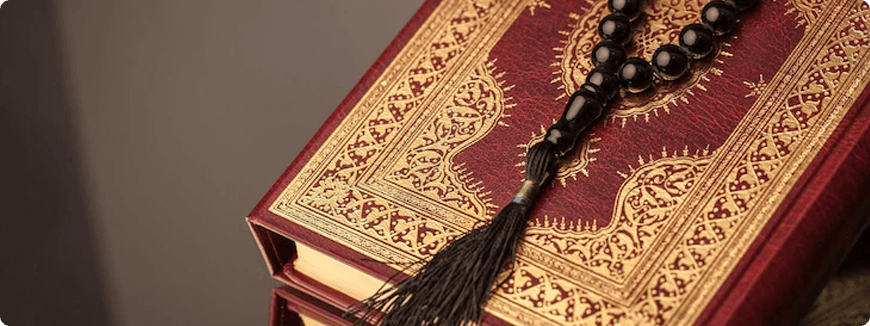
It is narrated by Abdullah Ibn Aufa (may Allah be pleased with him) that the Messenger of Allah صلي الله عليه وسلم said: “Whoever has some need from Allah or from any of His creation, let him perform ablution and pray two rak’ah, and praise Allah well after salah and send durood on the holy Prophet Muhammad صلي الله عليه وسلم then let him recite the following dua:
لا إله إلا الله الحليم الكريم سبحان الله العرش العظيم ......إلى.........يا أرحم الراحمين.
A narrator Faid Ibn Abdur Rahman has been termed weak in this hadith, yet Imam Tirmidhi has classified it as Hasan Gharib, thus he writes: this hadith is Hasan Gharib. (Sunan Tirmidhi, Hadith Number: 479) So, this narration is practicable.
How To Perform Salatul Hajat Step by Step Guide
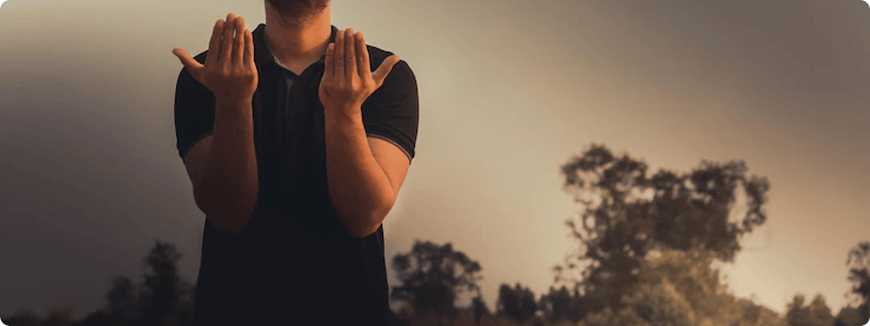
1. First Perform wudu or ablution.
2. Make sure that the time is not makruh or prohibited time for the voluntary salah. The prohibited times for the voluntary salah are after fajr salah, after asr salah, at the time of the sun’s ascension, and at the time of sunrise and sunset. Apart from these five times the rest are recommended and prescribed timings for any type of salah other than obligatory, which can be voluntary prayer or making up for the missed prayers also known as qadha e umri prayers. For more details on performing salah, visit How to Perform Salah.
2. Make sure that the time is not makruh or prohibited time for the voluntary salah. The prohibited times for the voluntary salah are after fajr salah, after asr salah, at the time of the sun’s ascension, and at the time of sunrise and sunset. Apart from these five times the rest are recommended and prescribed timings for any type of salah other than obligatory, which can be voluntary prayer or making up for the missed prayers also known as qadha e umri prayers. For more details on performing salah, visit How to Perform Salah.
3. Perform two rakats of voluntary prayers with the niyyat or intention of salat ul hajat. If there is a specific need then define that need otherwise there can be general intention as well, just to seek the pleasure of Allah the Almighty, seek His forgiveness , grant respite from hellfire and the closeness of prophet Muhammad on the day of judgement.
4. Afterwards while sitting in the same posture the musaali should recite praise of Allah the Almighty and send (Darood) salutations to the beloved Prophet صلى الله عليه وسلم
5. Then recite the following supplication or also known as dua e hajat.Durod e Ibrahimi has many benefits:
لا إِلَهَ إلاَّ اللهُ الحَلِيمُ الكَرِيمُ، سُبْحَانَ اللهِ رَبِّ الْعَرْشِ العَظِيمِ ، الحَمْدُ لِلهِ رَبِّ العَالَمِيْنَ ، أَسْأَلُكَ مُوجِبَاتِ رَحْمَتِكَ ، وَعَزَائِمَ مَغْفِرَتِكَ ، وَالْغَنِيمَةَ مِنْ كُلِّ بِرّ،ٍ وَالسَّلامَةَ مِنْ كُلِّ إِثْمٍ ،لاَ تَدَعْ لِيْ ذَنْباً إِلاَّ غَفَرْتَهُ، وَلاَ هَمَّاً إِلاَّ فَرَّجْتَهُ، وَلاَ حَاجَةً هِيَ لَكَ رِضاً إِلاَّ قَضَيتَهَا يَا أَرْحَمَ الرَّاحِمِيْنَ
"There is no deity but Allah, the Most Forbearing, the Ever-Generous. Glory be unto Allah, Lord of the Great Throne. Praise be to Allah, Lord of all the worlds. I ask you for those things that bring about Your mercy and Your complete forgiveness; [for] a full portion of every righteous act, and safety from every vice. Do not leave any sin of mine except that You forgive it; any anxiety except that You relieve it; nor any need of mine that pleases You except that You fulfill it, O Most Merciful of those who show mercy."
(Tirmidhi)
(Tirmidhi)
6. Then ask for your specific need or hajat.
7. Have this yaqeen or belief that your prayer will be answered since Allah the Exalted loves it when His sinful and soul searching believer turns to Him in earnest supplications and leaves all his needs and matters in His hands.
See also: how to pray istikhara step by step
Benefits of Salatul Hajat
Increased Gratitude
Performing Salatul Hajat gives you a sense of vulnerability. It helps you recognize and appreciate the countless blessings Allah Almighty has already given you.
By seeking His Divine Assistance in times of need, you become more aware of His Divine Generosity, and appreciate all the blessings He’s endowed you with, no matter how small and develop a heart full of gratitude.
Stronger Faith in Allah Almighty
Turning to Allah Almighty in times when you need Him most enhances your connection towards Him.
Through Salatul Hajat, it strengthens your faith and reliance on Him. It reminds you that everything is in His control, that there are some things you cannot control, and that sincere supplication can bring solutions to any problem kind of problem.
Even if Allah Almighty doesn’t answer right away, it gives you a sense of peace and clarity to connect with Him in times of need.
Granted Protection
When asking for Allah’s Help with utmost sincerity, praying Salatul Hajat invites Allah’s Divine Protection against hardships, difficulties, and harm. Seeking His help through prayer serves as a shield against negative influences and misfortunes.
Better Communication with Allah Almighty
Salatul Hajat deepens your connection with Allah Almighty, making your du’as more heartfelt and personal.
When you are in a vulnerable state, in a state of helplessness, this prayer serves as a reminder that He is always near, ready to listen and respond to your supplications in times of need.
Improved Mental and Emotional Health
Performing Salatul Hajat brings inner peace and comfort, reducing stress, anxiety, and worries.
Knowing that you have entrusted your affairs to Allah Almighty provides relief and a sense of acceptance of the fate that Allah Almighty has written for you, further strengthening emotional resilience.
Increased Blessings
Regularly praying Salatul Hajat opens doors to Allah’s Divine Blessings in both worldly and spiritual matters.
When you turn to Him sincerely, He grants you what is best for you, often in ways beyond your expectations.
Forgiveness of Sins
Engaging in voluntary prayers like Salatul Hajat is also a means of seeking Allah’s Forgiveness. When you get up to perform beyond what is asked of you, it is also a means for your sins to be forgiven.
Sincere repentance and du’a during this prayer can help erase sins and bring you closer to His Divine Mercy, Insha’Allah.
Entering Jannah, Insha’Allah
The idea of performing voluntary acts alone for the sake of Allah Almighty is a noble act.
By consistently seeking Allah’s Help, Guidance, and Mercy through voluntary prayers like Salatul Hajat, you increase your chances of attaining Jannah, Insha’Allah.
Strengthening your relationship with Allah Almighty through prayer is a step toward eternal success in the Hereafter.
Most Powerful Salatul Hajat Dua to Recite After Hajat Prayer
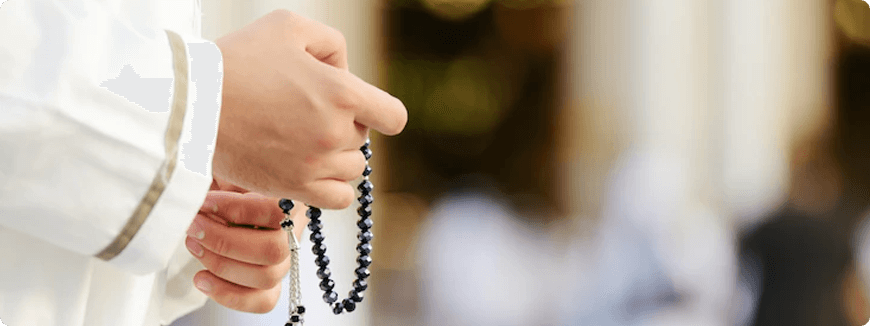
One may recite this dua hajat right after performing the two raka’ahs.
There is only one supplication that is quoted from authentic narrations of hadith that has been mentioned above.
اللَّهُمَّ أَكْثِرْ مَالَهُ وَوَلَدَهُ وَبَارِكْ لَهُ فِيمَا أَعْطَيْتَهُ
Narrated Anas bin Malik (radiallahu anhu):
from Umm Sulaim, that she said: "O Messenger of Allah, Anas bin Malik is your servant, supplicate to Allah for him." He said: "O Allah, increase his wealth and his children, and bless him in what You have given him." [Jami` at-Tirmidhi]
All the prophetic duas mentioned above in the quranic section, can be also recited other than the narrated supplications.
Another famous dua is of Prophet Musa May Allah send His peace and blessings on him, mentioned in Quran in Surah Qasas, Chapter 28: verse 24,
in his story when he escapes from pharaoh after being involved in accidental death of a qibti, it is so beautiful if one studies his story, how at each and every step of his trial and tribulation, he immediately turns to Allah the Almighty and reaches out in earnest dua hajat and fulfillment of his need in prayer and supplication.
فَسَقٰى لَهُمَا ثُمَّ تَوَلّٰٓى اِلَى الظِّلِّ فَقَالَ رَبِّ اِنِّىۡ لِمَاۤ اَنۡزَلۡتَ اِلَىَّ مِنۡ خَيۡرٍ فَقِيۡرٌ
He watered their flocks for them, withdrew into the shade, and prayed, ‘My Lord, I am in dire need of whatever good thing You may send me
Again in a similar manner as in the case of other prophets, Allah the Almighty sent immediate assistance to him through one of the daughters of Prophet Shaoib, May Allah send his blessings on him, and he was granted a home and a wife.
Hence the pious predecessors recommend this dua to anyone who desires a righteous spouse for themselves and seeking a compatible proposal in marriage which is another basic need and human desire. To pray two rakat of voluntary salatul hajat and make this dua.
Adhkar To Recite after Hajat Prayer:
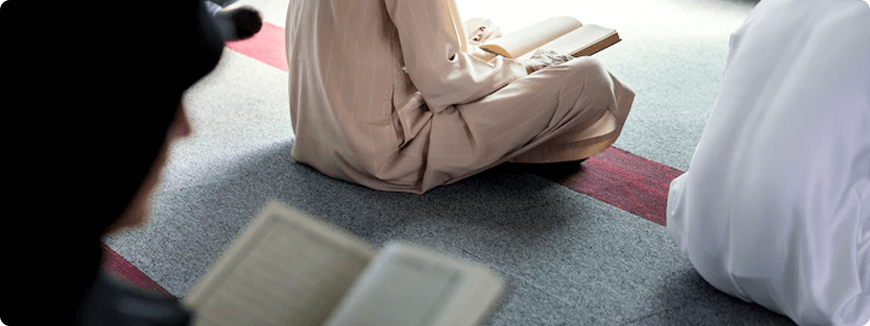
1. Praise of Allah the Almighty.
سبحان الله و بحمده سبحان الله عظيم
Glorified is Allah the Almighty, and Praised is He, Glorified is Allah the Almighty the Most Great.
سبحان الله و الحمد لله و لا اله الا الله والله اكبر
Glory is to Allah the Almighty and praise is to Allah the Almighty,and there is none worthy of worship but Allah the Exalted, and Allah is the Greatest.
2. Istighfar.
استغفر الله الذي لا اله الا هو الحي القيوم و اتوب اليه
I seek the forgiveness of Allah the Exalted, there is no deity worthy of worship except Him, the living, the eternal and I repent onto Him.
3. Salutations and blessings on the Prophet Muhammad
اللَّهُمَّ صَلِّ عَلَىٰ مُحَمَّدٍ وَعَلَىٰ آلِ مُحَمَّدٍ ❁ كَمَا صَلَّيْتَ عَلَىٰ إِبْرَاهِيْمَ وَعَلَىٰ آلِ إِبْرَاهِيْمَ ❁ إنَّكَ حَمِيْدٌ مَجِيْدٌ ❁ اللَّهُمَّ بَارِكْ عَلَىٰ مُحَمَّدٍ وَعَلَىٰ آلِ مُحَمَّدٍ ❁ كَمَا بَارَكْتَ عَلَىٰ إِبْرَاهِيْمَ وَعَلَىٰ آلِ إِبْرَاهِيْمَ ❁ إنَّكَ حَمِيْدٌ مَجِيْدٌ
O Allah, let Your Peace come upon Muhammad صلي الله عليه وسلم and the family of Muhammad, صلي الله عليه وسلم as you have brought peace to Ibrahim and his family. Truly, You are Praiseworthy and Glorious. Allah, bless Muhammad صلي الله عليه وسلم and the family of Muhammad صلي الله عليه وسلم , as you have blessed Ibrahim and his family.Truly, You are Praiseworthy and Glorious.
Durod e Ibrahimi Benefits and Rewards
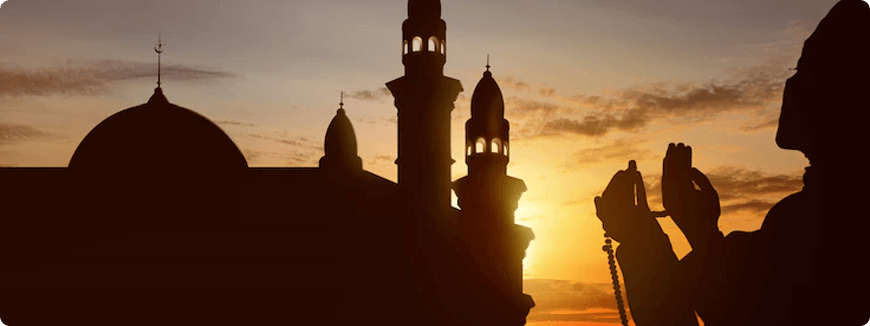
Durod e Ibrahimi has many benefits:
“Whoever supplicates Allah to exult for me, Allah would exalt him ten times.”
[Muslim].
[Muslim].
Blessings:
One who recites Durood Ibrahim 10 times in the morning and ten times in the evening, then he will receive the help of Holy Prophet Muhammad صلي الله عليه وسلم on the final day.
Fulfillment of Hajats:
Moreover, One who recites Durood-e-Ibrahimi maximum time a day and Allah will accept all his prayers (Dua) and fulfill all his Hajat.
Acceptance of Dua:
Since, it is a source of acceptance of Dua. Allah accepts your all supplications if you sent a Durood on Prophet Muhammad . صلى الله عليه وسلم
Solve Problems:
When you are angry, recite this Durood-e-Pak. Insha-Allah! Allah will solve all your problems.
The Closeness to the Prophet صلى الله عليه وسلم in Jannah:
Prophet Muhammad صلي الله عليه وسلم said: “On the day of Judgment the person closest to me will be the one who has sent the most Durood into me.” [Tirmidhi].
Final Thoughts: How to Perform Salat ul Hajat?
So after going through this article in the end, a question may arise in the reader’s mind that why is it that the dua hajat of these prophets were answered as is evident from the verses of Quran, but when we make supplications, sometimes they do not seem to be answered, so this can have multiple reasons, some of which are:
- These prophets were the Wali or close friends and beloved of Allah the Almighty and they made it their first and only resort to seek immediate assistance when in need through prayer dua and supplication and worship.
- They did not resort to any worldly means or resources although it is permissible to do so.
- They remained patient and placed their entire reliance and tawakkul or trust in Allah the Exalted.
- They refrained from complaining, being hasty , impatient and ungrateful even if it seemed that the circumstances were not seemingly in their favour.
- They were pleased or content with whatever their Lord had in store for them and did not seek anything which they knew would displease Allah the Almighty. If we try to inculcate these essential characteristics then maybe we can be in a better position to have our supplications or hajat prayer answered as well.
Subscribe to Our Newsletter
Stay updated on our free courses, promotions, events and more!
Thank you!
FAQs
Can I Pray Salatul Hajat Every Day?
Yes, you can pray Salatul Hajat every day. There is no restriction on how often you can perform this prayer. It is a voluntary (nafl) prayer that can be offered whenever you have a specific need or request from Allah Almighty.
Which Surah To Read For Hajat?
There is no specific surah that must be recited in Salatul Hajat. However, many scholars recommend reciting Surah Al-Fatihah followed by Surah Al-Ikhlas, Surah Al-Falaq, or Surah An-Nas. Some also suggest reciting Ayat Al-Kursi (Surah Al-Baqarah, 2:255) or Surah Al-Anbiya, verse 87 (the Du'a of Prophet Yunus AS) after the prayer.
What is The Difference Between Tahajjud and Salatul Hajat?
Tahajjud and Salatul Hajat are both voluntary prayers, but they serve different purposes: Tahajjud is a highly recommended night prayer, usually performed in after a moment of sleep, seeking closeness to Allah Almighty. Salatul Hajat is a specific prayer performed at any time when a person has a particular need or request from Allah Almighty.
Is Salatul Hajat Authentic?
Yes, Salatul Hajat is supported by authentic narrations.
“The Messenger of Allah (ﷺ) came out to us and said: ‘Whoever has some need from Allah or from any of His creation, let him perform ablution and pray two Rak’ah...” [Sunan Ibn Majah]
Is Salatul Hajat a Sunnah or Nafl?
Salatul Hajat is a nafl (voluntary) prayer and it is narrated in a hadith, though not termed as ‘Hajat’, but ‘need’.
“The Messenger of Allah (ﷺ) came out to us and said: ‘Whoever has some need from Allah or from any of His creation, let him perform ablution and pray two Rak’ah...” [Sunan Ibn Majah]
"لاَ إِلَهَ إِلاَّ اللَّهُ الْحَلِيمُ الْكَرِيمُ سُبْحَانَ اللَّهِ رَبِّ الْعَرْشِ الْعَظِيمِ الْحَمْدُ لِلَّهِ رَبِّ الْعَالَمِينَ
اللَّهُمَّ إِنِّي أَسْأَلُكَ مُوجِبَاتِ رَحْمَتِكَ وَعَزَائِمَ مَغْفِرَتِكَ وَالْغَنِيمَةَ مِنْ كُلِّ بِرٍّ وَالسَّلاَمَةَ مِنْ كُلِّ إِثْمٍ
سْأَلُكَ أَلاَّ تَدَعَ لِي ذَنْبًا إِلاَّ غَفَرْتَهُ وَلاَ هَمًّا إِلاَّ فَرَّجْتَهُ وَلاَ حَاجَةً هِيَ لَكَ رِضًا إِلاَّ قَضَيْتَهَا لِي"
مَّ يَسْأَلُ اللَّهَ مِنْ أَمْرِ الدُّنْيَا وَالآخِرَةِ مَا شَاءَ فَإِنَّهُ يُقَدَّرُ
"None has the right to be worshipped but Allah, the Forbearing, the Most Generous. Glory is to Allah, the Lord of the Mighty Throne. Praise is to Allah, the Lord of the worlds.
O Allah, I ask You for the means of Your mercy and forgiveness, the benefit of every good deed and safety from all sins. I ask You not to leave any sin of mine but You forgive it, or any distress but You relieve it, or any need that is pleasing to You but You grant it."
Then he should ask Allah for whatever he wants in this world and in the Hereafter, for it is decreed.
(Sunan Ibn Majah)
(Sunan Ibn Majah)
Discover Engaging Islamic Lessons for Kids with Simply Islam Academy!
Teaching Islam to children is a beautiful and rewarding journey that lays the foundation for a lifelong connection with their faith. By using creative, age-appropriate methods, you can nurture their love for Islam while instilling values that will guide them throughout their lives.
At SimplyIslam Academy, we offer a variety of engaging and interactive Islamic lessons to empower all Muslims regardless of background, age and profession. From stories of the Prophets to core principles, our platform makes learning Islam meaningful for all.
Browse through our programs today and discover how we can empower you in your journey. Start today, learn Islam anytime, anywhere.
Related Courses
About The Author:
Written By:
Naushin Abid
Naushin Abid is currently teaching online at Zaynab Academy and enrolled in Takhassus programme (specialization in Fiqh and Ifta) at Albalagh Academy UK online. She has 15+ years of work experience in the field of education, management, teaching, evaluation, training, curriculum design, planning, coordination, in various private school educational networks locally, like beaconhouse and city school. She graduated with a degree of Bachelors in Civil Engineering with Honours from University of Engineering & Technology in Lahore, Pakistan. She’s married and lives in Lahore, and writing is her childhood passion. She is currently a freelance writer at SimplyIslam Academy.
About Us
SimplyIslam Academy, a subsidiary of SimplyIslam.sg, is an online Islamic education centre, delivering quality Islamic courses via online since early 2021.
The online Islamic school provides indispensable learning on the various sciences of Islam, covering Qur’an, Hadith, Sirah, Fiqh, Tasawwuf, and others.
The online Islamic school provides indispensable learning on the various sciences of Islam, covering Qur’an, Hadith, Sirah, Fiqh, Tasawwuf, and others.
Follow us
Useful Links:
Thank you!

Learn Anytime, Anywhere
Copyright © SimplyIslam Academy. All Rights Reserved.
Try Our Free Online Islamic Classes Today
Enter your email and we’ll send you notifications on our free classes.
Thank you for subscribing to our newsletter!
Try Our Free Online Islamic Classes Today
Enter your email and we’ll send you notifications on our free classes.
Thank you for subscribing to our newsletter!
